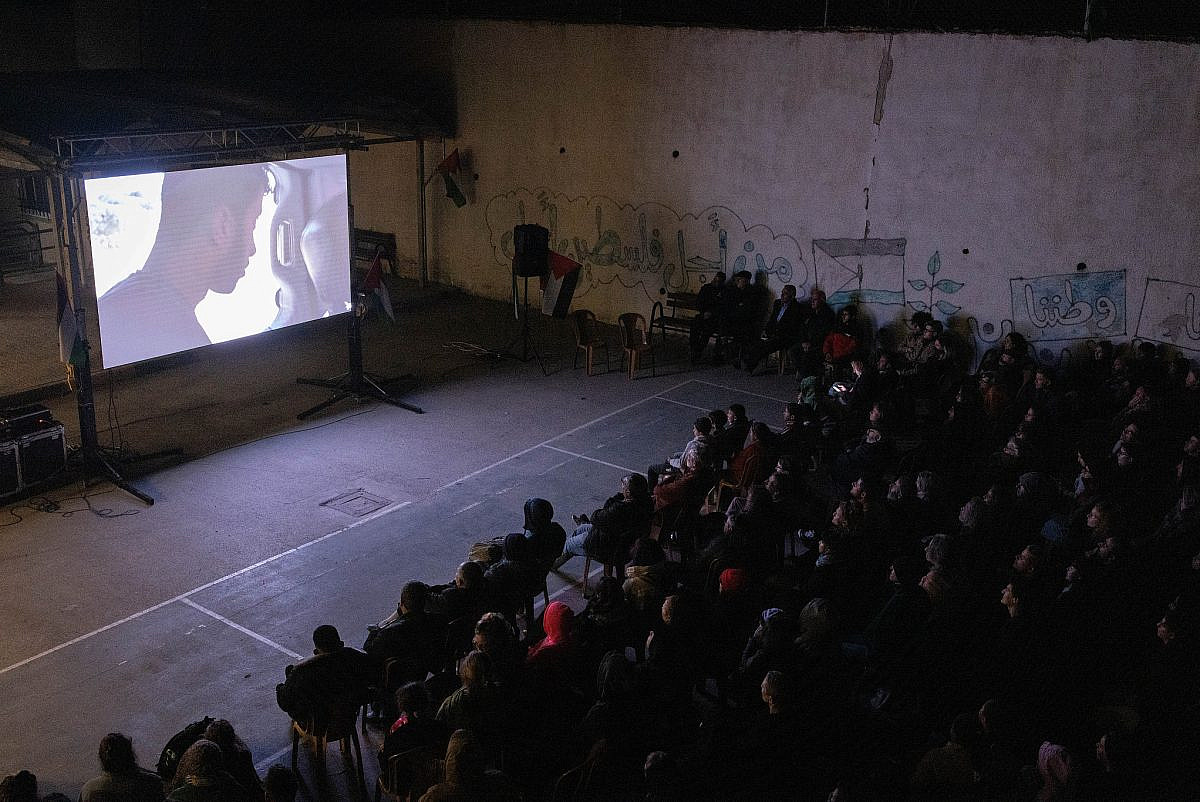On the evening of March 14, we set out 350 chairs in the courtyard of the school in At-Tuwani, in the Masafer Yatta region in the West Bank, preparing for a larger crowd than had ever been assembled in the small village. As people arrived — three full buses from Tel Aviv and Jerusalem, with dozens more people coming by car — the seats filled up quickly, with many having to sit on the ground or stand in the back to get a peek.
These guests had come to see the film, “No Other Land,” produced by Basel Adra, Yuval Abraham, Rachel Szor, and myself. The film was our attempt to give people insight into the realities of our lives in Masafer Yatta: the constant onslaught of Israeli state and settler violence, and the toll it takes on us; everyday moments and interactions with our families; and the complicated relationships we Palestinians navigate with those who come here to support and resist alongside us.
In one scene from the film, the mother of the late Harun Abu Aram — a Palestinian resident who was shot and paralyzed by Israeli soldiers while they confiscated his generator — laments the constant presence of journalists and cameras in her makeshift home, coming to photograph her disabled son. They take photos, she says, but what help are they actually offering? What are they doing to change Harun’s, or his family’s, situation?
The film is our attempt to answer that demand: to take the camera, and the years of documented protests, demolitions, and violence, and do something to change the lives of the people of Masafer Yatta. And indeed, the film has had an international impact. We completed the project in late October, and as the world turned its eyes to Palestine, we felt a sense of urgency, to show audiences what was really happening on the ground.
We thus submitted the film to the Berlinale festival, where tickets for all four screenings sold out on the first day. It was proof that people believed our story was important, that they wanted to learn about Masafer Yatta. I never imagined that our story would travel so far away and be seen by so many people. We ultimately won the Best Documentary and the Audience Choice awards.
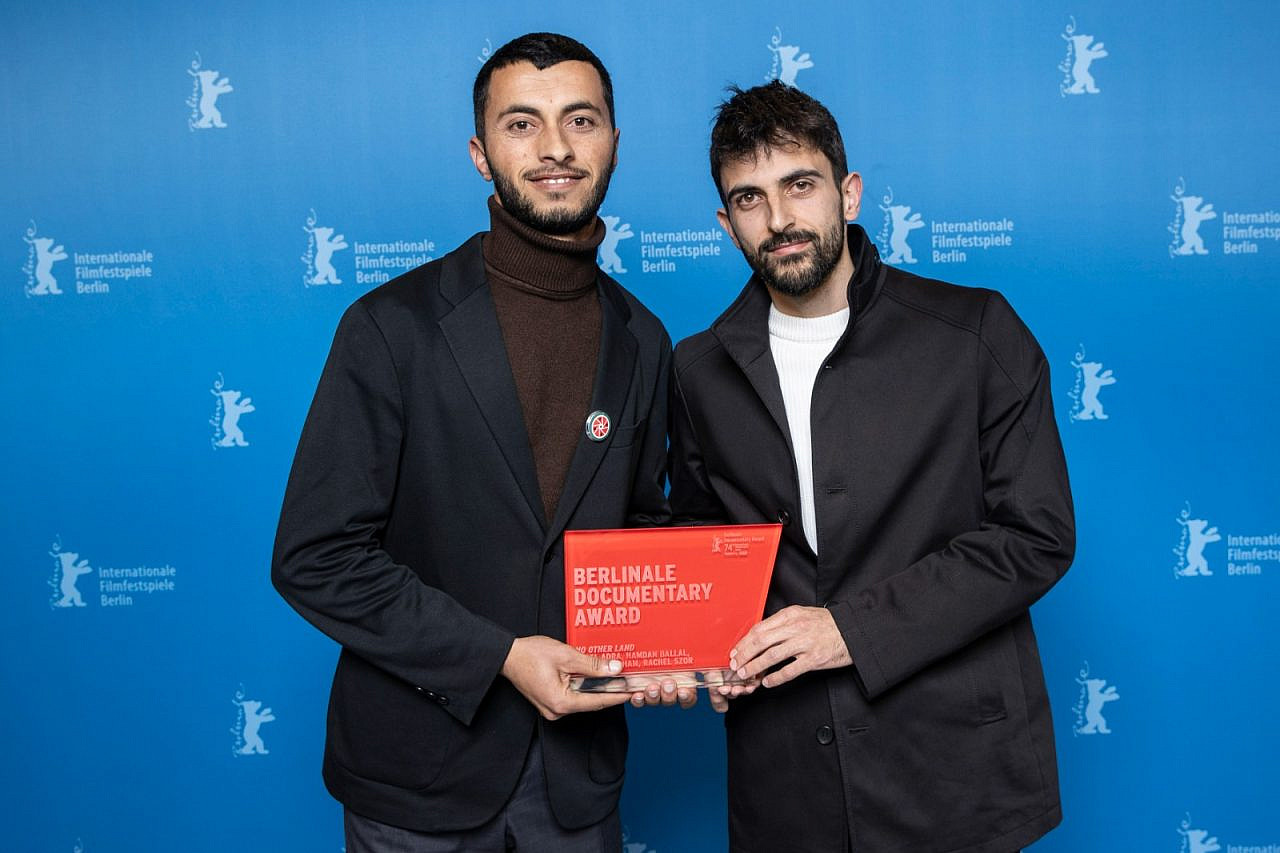
Yet perhaps the clearest proof that our film has had an impact was not on the stages of Berlin or even in the press. Rather, it was at the film’s screening in At-Tuwani, where not only hundreds of outsiders, but residents of Masafer Yatta themselves came to see the film. Since October 7, settlers and the army have set up major roadblocks throughout Masafer Yatta, making it extraordinarily difficult to move from place to place. Most residents do not leave their homes or travel unnecessarily, especially at night, because the roads and the dark can be dangerous. And yet, they still came.
Why did they take the risk and make the effort to come see our film, I wondered? They know these stories. They themselves have lived them. But it turns out that seeing your story on a big screen is an entirely different experience.
We’re often told that representation matters, yet I’ve never seen this as clearly as when I looked at the faces of the children of Masafer Yatta as they watched our film, waiting for their faces, their homes, and their loved ones to show up on the screen. I wasn’t sure if it was a good idea for the children to watch it — it depicts graphic violence and disturbing images of their communities. But they, too, live through this. They see it every day. It doesn’t matter whether or not they see it again on the screen.
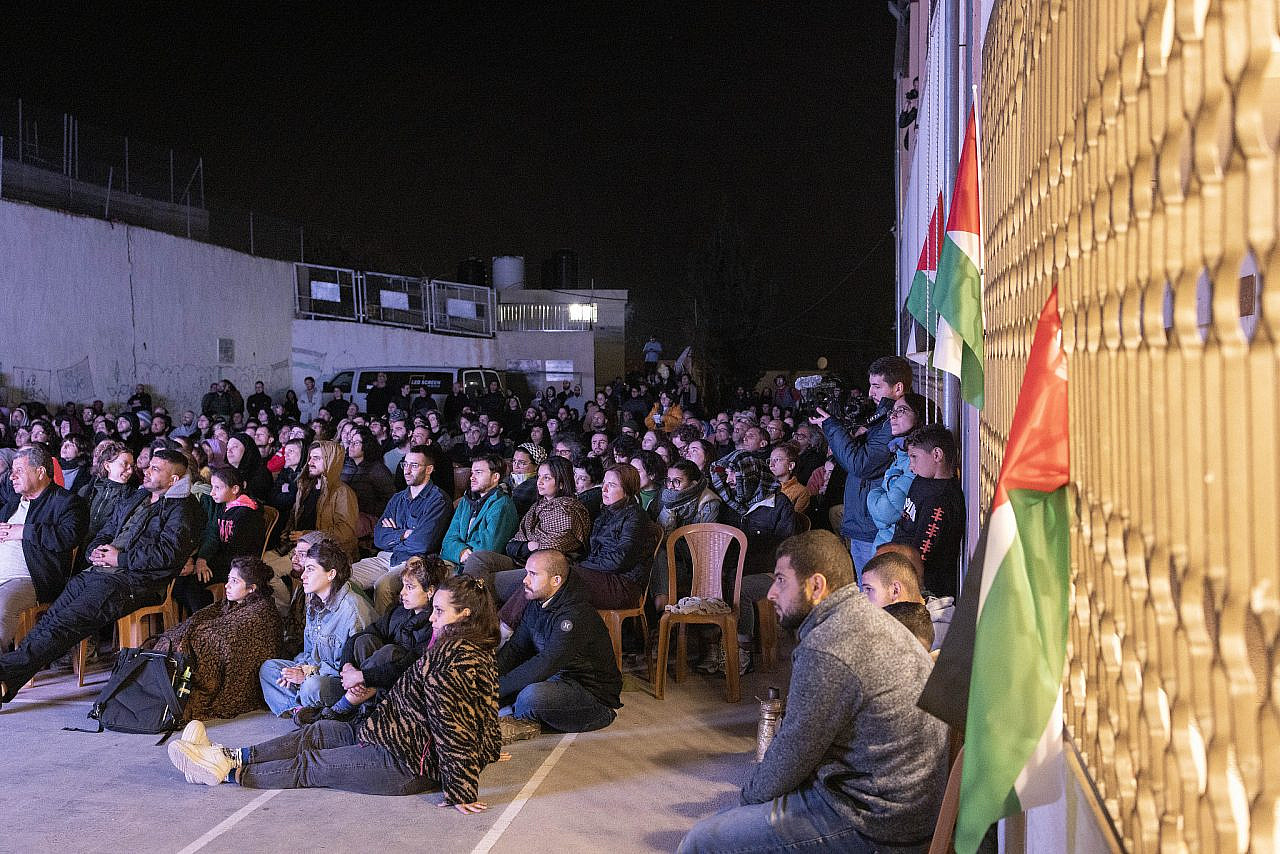
In fact, several kids told us that it was the first time they had seen their own lives laid out like a story. It gives the feeling that your story is important, that it deserves to be seen, and that people are with you.
“I grew up in this situation, but seeing it on the big screen broke my heart, and broke Masafer Yatta’s heart,” one friend said to me after the screening. “How can we continue to live like this?”
‘Suddenly we were back to real life’
For years, Basel and I have filmed Israeli home demolitions and settler violence in Masafer Yatta. It can be draining, filming these horrible incidents every day. As Basel says at one point in the film to Yuval, one of the film’s Jewish Israeli producers and subjects, “You can’t expect the occupation to end in 10 days.” But sometimes it feels as though no one knows what is happening here, and nothing will change.
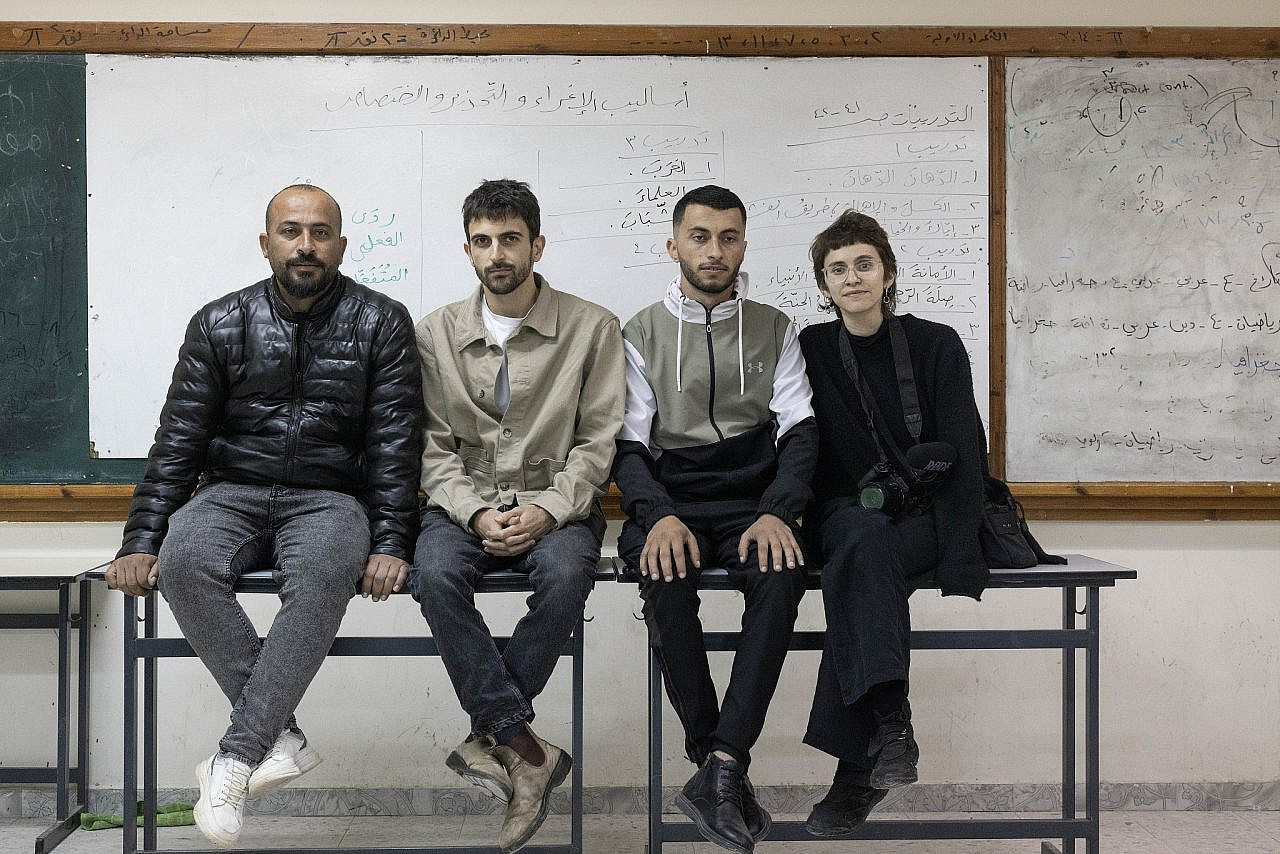
After teaming up with Yuval and Racheli in 2019, the four of us would go together to a demolition, each of us documenting the injustices around us, and Racheli would film us. We decided to focus especially on Basel’s story: he is an activist, and his parents are activists, and his relationship with Yuval is centered in the film. We interwove those stories with the larger story of Masafer Yatta.
The head of the Masafer Yatta council, who makes a brief appearance in the movie, described a moment when the Israeli Civil Administration presented a demolition order to a school as “the biggest thing [he’s] ever seen.” It was jarring to see this story playing out on screen in Masafer Yatta itself, not far from the very school that was demolished. Witnessing my community watching this, I felt powerful, as though we were really doing something for our people. It validated for us that we are on the right path. We set out to make our people feel that we are still fighting for them, and at least in that, we have succeeded.
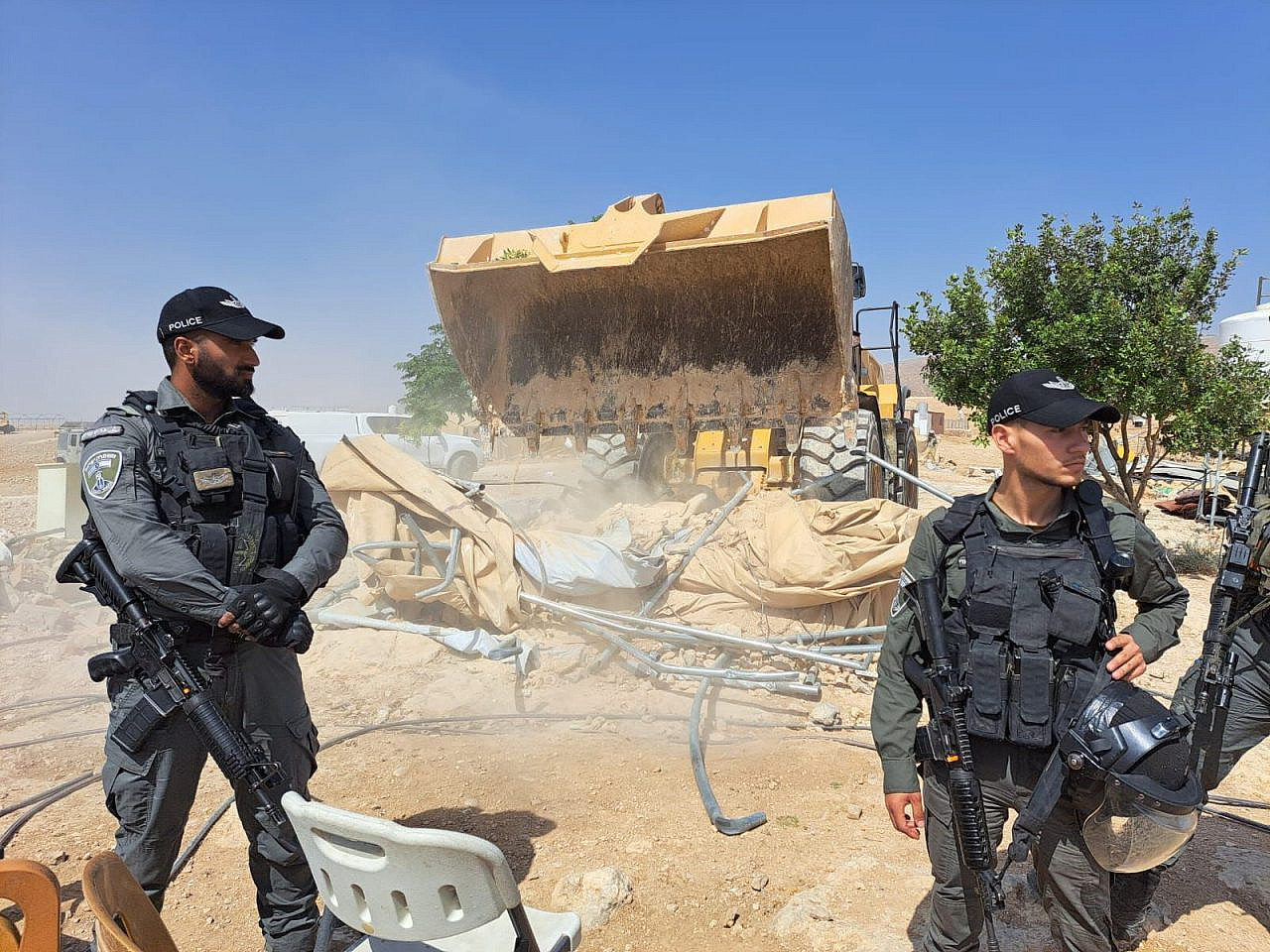
The film has not been able to stave off the brutality of this reality. My friend Awdah Hathaleen reflected: “Every family in Masafer Yatta lives in the same situation. And on the night of the screening … right after it ended, we got a phone call that settlers had raided the village of Umm al-Khair. We were watching the film, but then suddenly we were back to real life, which was really the same thing.”
And still, this screening was perhaps the first thing that truly made me believe that our camera can be stronger than the bulldozer. No matter how big it is, or how devastating the damage it wreaks, the bulldozer always leaves. When I document these moments — from five years ago, or 20 years ago — I create a permanent record of the destruction that it caused.
Most read on +972
“One way or another, the film will make a change,” said Awdah. “This is real life — all of these attacks, all of this harassment.”
With this film, and with similar efforts to come, we hope this record can be witnessed by people all around the world, and can drive forward our call to end the occupation and the suffering in Masafer Yatta and all of Palestine. It is a reminder, even for those of us who live in this reality, that we must continue to fight for a better future.

